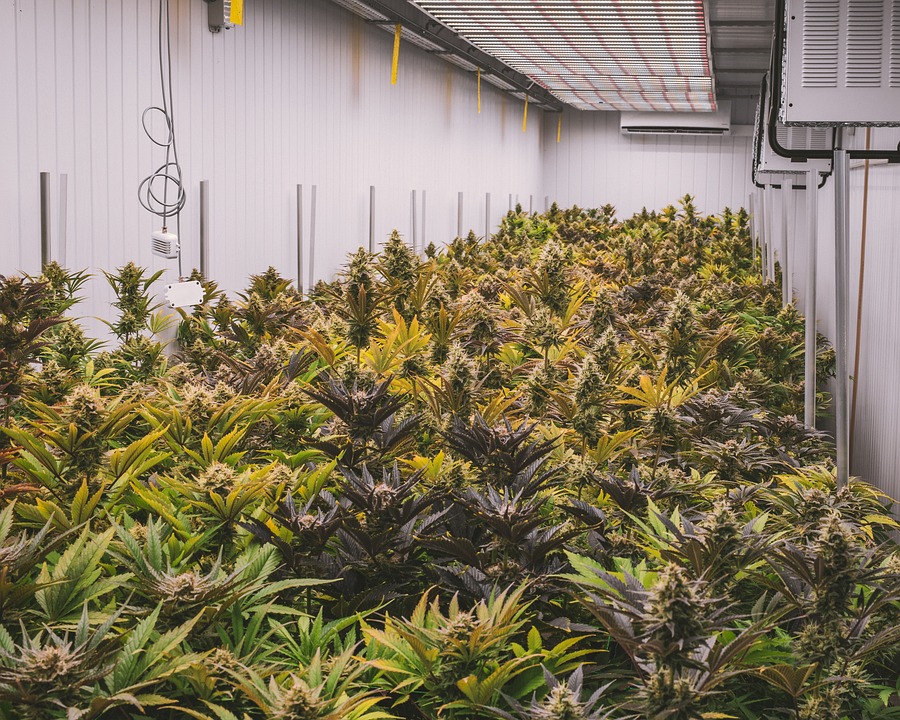Cannabis, also known as marijuana, has been used for both medical and recreational purposes for centuries. The plant contains over 100 compounds called cannabinoids, with one of the most well-known and studied being delta 9 tetrahydrocannabinol, or delta 9 THC for short.
Delta 9 THC is the psychoactive compound in cannabis that is responsible for producing the “high” feeling. It interacts with the body’s endocannabinoid system, a complex network of receptors and neurotransmitters that helps regulate various physiological processes. Delta 9 THC is what gives cannabis its mind-altering effects, which can include feelings of euphoria, relaxation, and altered perception of time and space.
But what sets delta 9 THC apart from other cannabinoids, and why is it the most well-known and sought-after compound in the cannabis plant? In this article, we will explore the unique characteristics of delta 9 THC and how it differs from other cannabinoids.
What is Delta 9 THC?
Delta 9 THC is a specific chemical compound found in the cannabis plant. It is classified as a cannabinoid, which is a type of chemical compound that interacts with the body’s endocannabinoid system. Delta 9 THC is one of the most abundant cannabinoids in cannabis, along with cannabidiol (CBD).
When consumed, delta 9 THC binds to receptors in the brain and body, specifically the CB1 and CB2 receptors, which are part of the endocannabinoid system. This interaction triggers various physiological responses, including the release of neurotransmitters such as dopamine and serotonin, which are responsible for producing feelings of pleasure and euphoria.
Delta 9 THC is known for its psychoactive effects, which can include feelings of relaxation, increased appetite, altered perception of time and space, and heightened sensory experiences. These effects are what make delta 9 THC popular for recreational use, as well as for medicinal purposes.
How is Delta 9 THC Different from Other Cannabinoids?
While delta 9 THC is the most well-known and researched cannabinoid, there are many other compounds in the cannabis plant that also have unique properties and effects. Some of the other cannabinoids found in cannabis include:
– Cannabidiol (CBD): CBD is another popular cannabinoid that is non-psychoactive, meaning it does not produce a “high” feeling. CBD has been studied for its potential therapeutic benefits, including its anti-inflammatory, analgesic, and anxiolytic properties.
– Cannabinol (CBN): CBN is a cannabinoid that is produced when delta 9 THC oxidizes over time. It is known for its sedative effects and has been studied for its potential use as a sleep aid.
– Cannabigerol (CBG): CBG is a precursor to other cannabinoids, including delta 9 THC and CBD. It has been studied for its potential anti-inflammatory and neuroprotective properties.
– Tetrahydrocannabivarin (THCV): THCV is a cannabinoid that is structurally similar to delta 9 THC but produces different effects. It is known for its appetite-suppressing and energizing properties.
While delta 9 THC is the most well-known cannabinoid due to its psychoactive effects, each cannabinoid has unique properties and potential benefits. Some cannabinoids, such as CBD, have gained popularity for their therapeutic potential and lack of psychoactive effects, making them suitable for individuals who want to experience the benefits of cannabis without getting high.
Frequently Asked Questions About Delta 9 THC
Q: Is delta 9 THC legal?
A: The legality of delta 9 THC varies depending on where you live. In many states in the United States, delta 9 THC is legal for medical and recreational use. However, it is important to check the laws in your area before using delta 9 THC.
Q: What are the potential health benefits of delta 9 THC?
A: Delta 9 THC has been studied for its potential therapeutic benefits, including its anti-inflammatory, analgesic, and antiemetic properties. It may also be helpful for individuals with conditions such as chronic pain, nausea, and appetite loss.
Q: Can delta 9 THC cause addiction or dependence?
A: Delta 9 THC has the potential to be addictive, especially for individuals who use it frequently and in high doses. It is important to use delta 9 THC responsibly and in moderation to minimize the risk of developing a dependence.
Q: Are there any side effects of using delta 9 THC?
A: Some of the potential side effects of using delta 9 THC include dizziness, dry mouth, increased heart rate, and impaired cognitive function. These side effects are typically mild and temporary but can be more pronounced in individuals who are sensitive to delta 9 THC.
Q: How can delta 9 THC be consumed?
A: Delta 9 THC can be consumed in a variety of ways, including smoking, vaping, edibles, tinctures, and topicals. Each method of consumption has its own onset and duration of effects, so it is important to choose the method that works best for you.
In conclusion, delta 9 THC is a unique cannabinoid that is known for its psychoactive effects and potential therapeutic benefits. While it is the most well-known compound in the cannabis plant, there are many other cannabinoids with their own properties and effects. Whether you use delta 9 THC for recreational or medicinal purposes, it is important to educate yourself about the potential risks and benefits of using this compound. By understanding how delta 9 THC interacts with the body and its effects, you can make informed decisions about your cannabis consumption.

